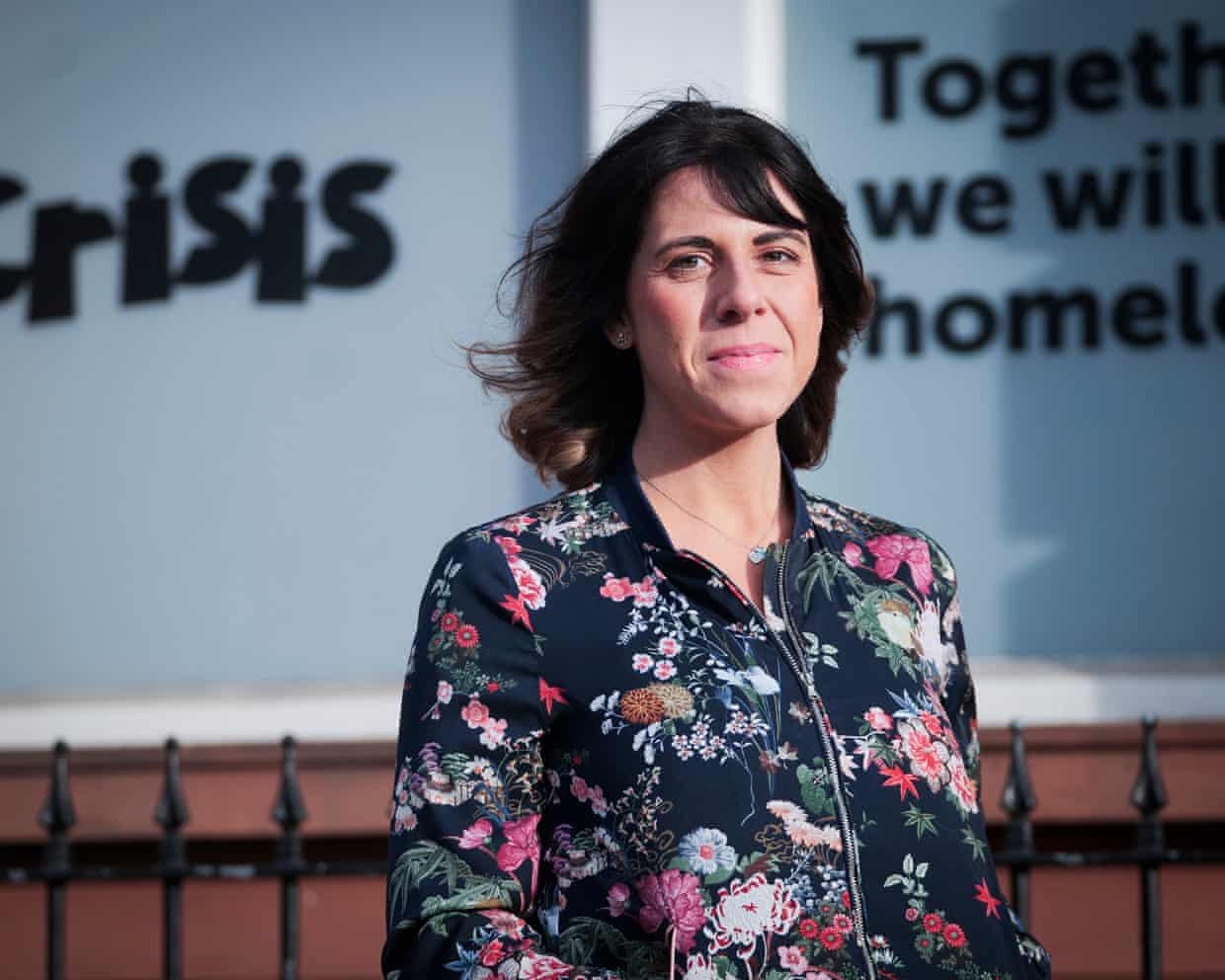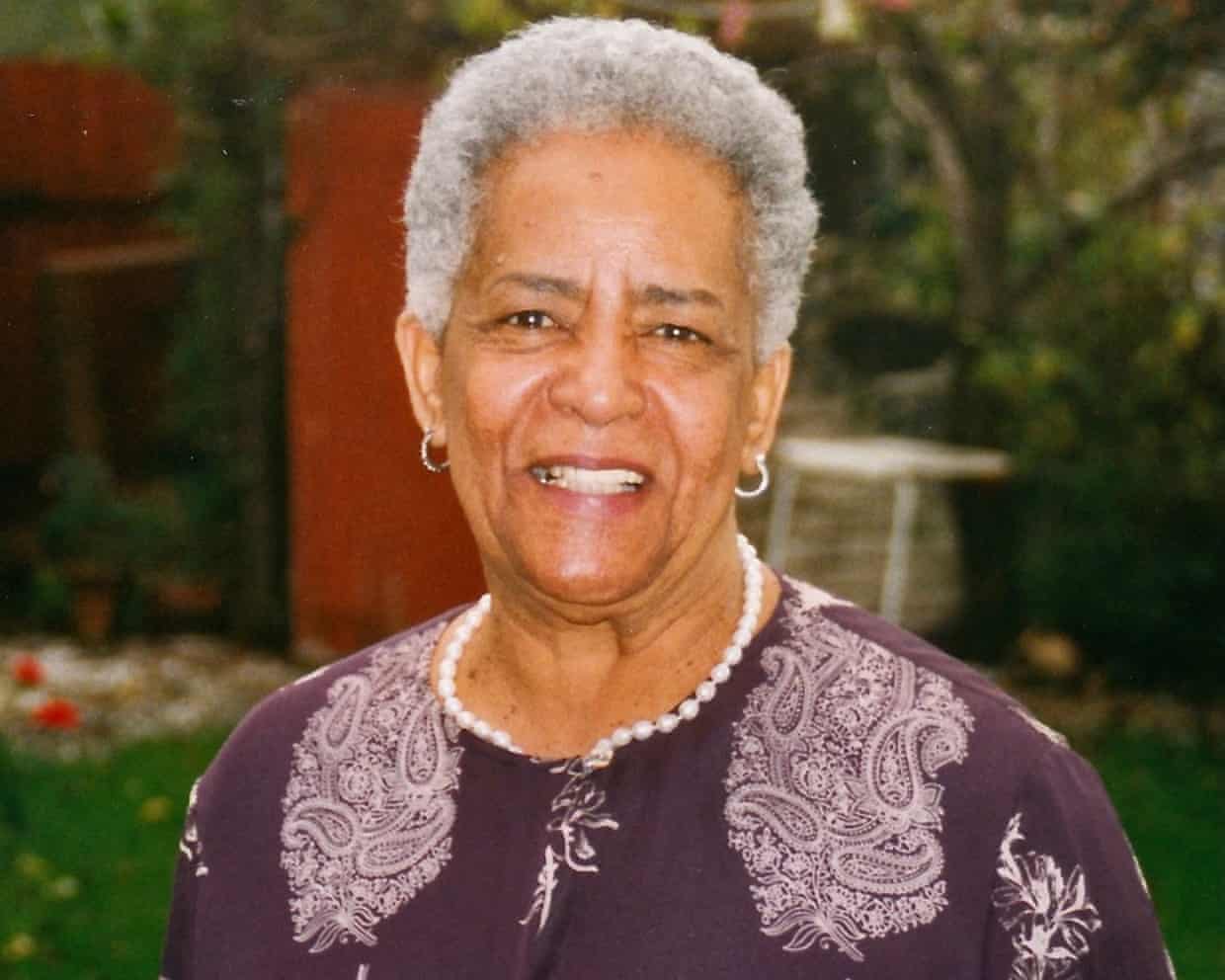‘Similar pressure to London’: the housing crisis reaches Newcastle

It used to be rare to see people waiting outside the Crisis centre in the heart of Newcastle, but now a queue of people snakes around the building most days before it opens its doors.It is a constant stream of rough sleepers, workers sleeping in their car or sofa-surfing, families reeling from an eviction notice, people fleeing domestic violence or recently arrived refugees with nowhere to go filing in desperate for help.The north-east city used to be considered among the country’s most affordable places to live, but in recent years it has been engulfed in a housing crisis that has pushed the city closer to London with its soaring rents and long waiting lists for social housing.“Five or six years ago, I’d say to colleagues here: ‘You’ve got it easy compared with Brent, this is no problem compared with Croydon.’ The pressure in London is definitely worse, but we’re seeing similar situations in the north-east now,” said specialist housing adviser, Mark Reynolds.
“That’s for the first time in my career, and I’ve worked on Tyneside for 25 years.”It has left staff at the centre – known as a Skylight – at a loss when trying to find people homes.A board in the office shows the current wait times for a social home in the city range from three months for the most urgent cases, to between two and three years for those in the lowest priority band.All while private rents have risen rapidly: it now costs on average £500-550 a month for a room in the city centre, money that would have got you a one-bedroom flat a few years ago.“People are still shocked when I say that we don’t have any housing,” said Crystal Hicks, the director of Skylight.
“I’ll go and speak at conferences in London, and I’m trying to explain that the gap between local housing allowance and private sector rents is the highest in Newcastle than any of our nine locations.That’s what has changed.That would have been London without a doubt in the past.It’s not any more.”Michael*, who fled to the city to escape an abusive relationship, is stuck in a homeless hostel and facing an almost two-year wait for a home.
“I’m not on the streets any more.But the thing is, you don’t want to be in a hostel for 90 weeks because it’s literally a box.And you’ve only got a microwave and a fridge,” he said.“You’ve got no freedom.Mentally, it’s not good, being stuck somewhere like that.
”It’s one of the reasons why Newcastle, along with London, will be one of the first locations where Crisis starts buying its own housing stock in a first of its kind project for the charity.“Crisis has always said ‘we’re not landlords’, because we’ve never needed to be,” said Hicks.“But I think now we’re at the point where there’s not enough players in the market, not enough stock in the mix, so we do need to come in.It’s exciting.”It may also help ease the burden on their staff who, without their own housing, are often faced with having to tell frantic people that there is nowhere for them to go.
Most of the face-to-face services in the city shut their doors during the Covid pandemic and some never reopened.Around the corner from the Crisis centre sits the city council’s former Housing Advice Centre, boarded up and covered in graffiti, with services now in the city library by appointment only or over the phone.“People have legal rights, but you can hide behind a telephone, you don’t have to look somebody in the eyes,” said Hicks.“We have people sat in our reception at 4pm on a Friday and, whatever your computer says, they need help.Can you come and tell them to their face that tonight they have to go and sleep on the streets?”A Newcastle city council spokesperson said: “We have a strong track record of preventing and responding to homelessness by working closely with individuals to understand their unique circumstances and provide tailored support.
“We are also acutely aware of the wider housing pressures in our city.With almost 8,500 households on our social housing register, and many more struggling to find affordable homes, waiting times for permanent housing are longer than we would wish.This is a deeply frustrating reality for many residents and we share their concerns.”The council said it relocated its housing advice centre to the library in 2021 as most people were contacting them on the phone or online and it is developing plans to reintroduce face-to-face provision in the future.*Name has been changed to protect anonymity.

Billionaire Tory donor gives £200,000 to Reform UK
The company owned by the billionaire Conservative donor Lord Bamford has donated £200,000 to Nigel Farage’s Reform UK.The JCB chair, who has given millions of pounds to the Tories and bankrolled Boris Johnson’s wedding celebrations, disclosed the donation at the weekend, alongside one of equal size to the Conservatives.The Staffordshire-based heavy machinery manufacturer said it had donated to the Tories and Reform because it wanted to support parties that “believe in small business”.JCB is the world’s third-largest construction equipment company, with 22 plants on four continents, employing 19,000 people worldwide. Its sales turnover in 2024 was £5

Lady Howells of St Davids obituary
Like so many thousands of other young people of her generation, Rosalind Howells, who has died aged 94, left the Caribbean in 1951 with her head and heart filled with plans and dreams and intent upon her own hopes of a future possible professional career as a lawyer in Britain. Having arrived in London and recognised the grim everyday realities of inequality and discrimination that faced black people, she dedicated the rest of her life to doing something about it.She spent nearly half a century in south London working to improve the housing, education, health services and lifestyle of her community and then, on official “retirement”, went to the House of Lords in 1999. Tthe next 20 years she spent expounding her demands for equality to a wider audience, at Westminster and on international platforms in China, the Middle East and the US, seeking still to transform society and open the doors for others.She was not interested in rhetoric without reality, even less in tokenism

Can Nigel Farage emulate success enjoyed by Italy’s far-right Giorgia Meloni?
Reform’s leader may hope to tread a similar path to Italy’s prime minister, but she is an experienced parliamentarian open to collaboration and compromiseOne of the more striking images from June’s G7 summit showed a small group of world leaders engaged in an impromptu and informal evening chat at the venue’s restaurant. In the foreground of that photo was a familiar blond head: Giorgia Meloni.During her three years as the Italian prime minister, Meloni has moved beyond her hard-right populism, not to mention her fascism-adjacent origins, to earn at least the respect of other leaders – Keir Starmer among them – for her pragmatism and flexibility. Among those watching this transformation from the sidelines will be the man hoping to be Starmer’s replacement: Nigel Farage.If campaigning is, as the political truism goes, conducted in poetry while government is prose, this is doubly so for insurgents and outsiders, whose careers are built on promising rapid and straightforward solutions to seemingly intractable national troubles

King Charles and senior politicians lead UK Remembrance Sunday service at Cenotaph – as it happened
The prime minister, Keir Starmer, and other senior politicians have laid wreaths at the Cenotaph in central London to honour the service and sacrifice of those who lost their lives in conflict.Conservative leader Kemi Badenoch, Lib Dem leader Ed Davey, foreign secretary Yvette Cooper, home secretary Shabana Mahmood and Commons Speaker Lindsay Hoyle were among the other political figures who laid floral tributes during the Remembrance Sunday service.King Charles led a two-minute silence at the Cenotaph in central London as senior royals and senior politicians, including the prime minister, Keir Starmer, and the leader of the Conservative party Kemi Badenoch, gathered for the national memorial service on Remembrance Sunday.The culture secretary, Lisa Nandy, vowed that Labour is going to “grip” the prison crisis as the government continues to come under pressure after a number of high-profile cases of prisoners being wrongly released. Speaking to Sky News’ Trevor Phillips this morning, Nandy confirmed that four wrongly released prisoners are still at large

AI-powered nimbyism could grind UK planning system to a halt, experts warn
The government’s plan to use artificial intelligence to accelerate planning for new homes may be about to hit an unexpected roadblock: AI-powered nimbyism.A new service called Objector is offering “policy-backed objections in minutes” to people who are upset about planning applications near their homes.It uses generative AI to scan planning applications and check for grounds for objection, ranking these as “high”, “medium” or “low” impact. It then automatically creates objection letters, AI-written speeches to deliver to the planning committees, and even AI-generated videos to “influence councillors”.Kent residents Hannah and Paul George designed the system after estimating they spent hundreds of hours attempting to navigate the planning process when they opposed plans to convert a building near their home into a mosque

Developers met ministers dozens of times over planning bill while ecologists were shut out
The scale of lobbying of ministers by developers on Labour’s landmark planning changes, which seek to rip up environmental rules to boost growth, can be exposed as campaigners make last-ditch attempts to secure protections for nature.The government published its planning and infrastructure bill in March. Before and after the bill’s publication the chancellor, Rachel Reeves, and housing minister Matthew Pennycook have met dozens of developers in numerous meetings. The body representing professional ecologists, meanwhile, has not met one minister despite requests to do so.The government’s planning bill will reach its final stages before it is given royal assent in the coming days, after months of tussling between ministers, nature groups and ecologists

Die My Love to Rosalía’s Lux: your complete entertainment guide to the week ahead

Seth Meyers: ‘Trump has no idea what regular people are going through and he doesn’t care’

Seth Meyers on Mamdani’s win: ‘The kind of energy Democrats have been desperately seeking for years’

Garden shed of vaccine pioneer Edward Jenner added to heritage at risk register

Miss Piggy movie on way from Jennifer Lawrence, Emma Stone and Cole Escola

Colbert on Pelosi calling Trump a vile creature: ‘You know who agrees? Most Americans’